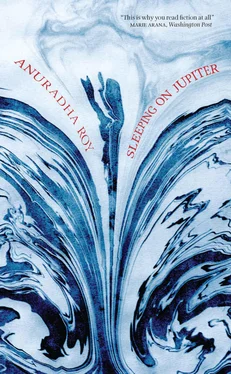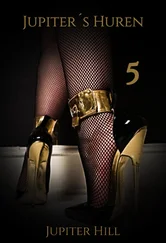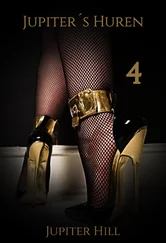“Really,” Gouri said, “Latika can still become such a giddy teenager. . can you imagine how embarrassed we’d have been looking at these kinds of sculptures with a strange man? A driver !”
“Someone’s walking on my grave,” Vidya said with a shiver. “This place has so many mysteries. Do you know, I’ve heard there’s an underground way to the sea from here? They used it to drown enemies?”
“Don’t think about all that,” Gouri said. “It’ll make you feel unwell again.” She placed a hand on Vidya’s arm. “You look hot, are you feeling alright?”
Vidya pulled a newspaper from her handbag and fanned herself with it. She dabbed her forehead with her sari. There wasn’t the faintest breath of a breeze under the implacable sky. The voices of other tourists came from far away, their words indistinguishable. In the tree above them a lone bulbul sat pecking at the figs, letting fall scorched leaves now and then. Vidya opened the newspaper. It was that morning’s, a good thing she had had the foresight to stuff it into her bag — she always had some reading material with her for just such unexpected stretches of idle waiting.
Gouri examined her bottle of mineral water and informed Vidya that it was from a Himalayan spring, pure as water from the holy Ganges. Then she observed how the Ganga’s purity had been destroyed by the very people who claimed to worship it. The paper rustled as Vidya turned its pages, the bulbul overhead sang a song. “Another bus accident,” Vidya exclaimed. “Twenty-five people dead this time. Does it make a difference?” Gouri closed her eyes and tried to listen only to the bulbul. She wanted no news. She did not want to think about anything. Then something on an inside page of the newspaper caught Vidya’s eye. She held it towards Gouri, showing her a photograph. “It’s that evil godman. He’s quite striking, isn’t he? In a creepy sort of way. Look at those eyes — something hypnotic about them.”
“I don’t want to look at such men.” Gouri turned away. “They finish off your peace. How sweetly that bird was singing. I wonder where it went.”
“Oh, come on, Gouri,” Vidya shook her head. But she said no more, returning to the paper.
“The papers are full of bad news,” Gouri said. “That’s why I seek out peaceful places like this, far away from newspapers.”
“Well, it all happened very near here, you know,” Vidya began again. “Just down the highway. .”
“Look,” Gouri said, “Pilgrims. Japanese, I think, Buddhists.” She did not want anything to soil the purity from sea and sky, the blueness and serenity she had managed to collect and store within herself after more than an hour of prayer on her hotel verandah that dawn.
Vidya folded the paper and began to fan herself with it. “Disgusting,” she said, “Unbelievable.” Her lips were pressed one against the other as if she were stopping herself from saying more with great effort. Above them a raucous battle broke out between crows, causing them to look up at the tree. Sooty feathers were flying, leaves rained on them. They had to move to get out of the way.
The diversion gave Gouri a chance to change the subject. “Let’s think of what we’ll do this evening. Maybe I’ll go to the temple again.”
“This evening I want to go to that other beach where the open market is. I missed it the day you two went. I want to buy some things, have the tea you talked about.”
Gouri recalled something and lit up. “Do you know who we saw on the beach when we were having that tea?”
“Who?”
“Suraj! We saw Suraj there!”
As soon as she had uttered the words, Gouri clamped her mouth with her palm. She was not meant to tell Vidya about her son. Of course she was not meant to tell her! Suraj was not supposed to be here at all. Latika would be livid.
“Suraj?” Vidya said. “How could that be? He’s on an office trip to Hyderabad. Why would he try to meet me here?”
“Oh no,” Gouri’s smile was forced. She felt short of breath, managed to say, “How stupid I am, always muddling people up. I meant to tell you about my terracotta tea stall, but then. .”
“What are you talking about? You said you saw Suraj!” Vidya stood up, agitated. “Did you see him or didn’t you?”
“No, really, I meant that husband of Parul’s: you know my niece Parul? Oh, I thought you’d met her. Well, her husband looks very like Suraj and I thought. .”
Latika returned, full of news. “He isn’t a driver at all. He’s the hotel’s manager. He’s only brought us because, last minute, the driver didn’t appear for duty. So knowledgeable about ancient sculpture! He knew each one of them, explained what they really mean. I’ll tell you everything later.”
Vidya had no ears for any of it. She confronted Latika, hands on her hips. “Suraj was on the beach yesterday, that’s what Gouri says. Did you see him too? Why didn’t you tell me?”
*
Even as she spoke, her son was closer than Vidya could have imagined: in a different part of the same ruins, climbing a flight of stone stairs bracketed by a pair of gryphons. Suraj selected a shadowed eave to sit in. He had a handful of tourist pamphlets with him and a notebook. He could see Nomi nearby, crouched, changing a lens on her camera. She straightened, then spotted something else and this time went on her knees, bent almost to the ground. She was wearing a dark blue kurta too large for her, one of the Indian clothes she had bought for herself in her bid to blend in. She had chopped the kurta’s sleeves off because of the heat and wore it with shapeless white pyjamas to her ankles. Her feet were in red sneakers.
This was her notion of dressing demurely in Indian clothes. A lazy grin dislodged Suraj’s cigarette and he held it between thumb and forefinger, sucking in the smoke as he observed her. The kurta hung on her as loose as a shift and kept slipping off her shoulders. It was an angular shoulder that led to slender but muscular arms. His own biceps had long since softened, but she was young, she worked on hers, he could see.
He looked at her focusing on a frieze of elephants in procession. She was at work. He was not. He needed to recover from the scare of his near-drowning that morning. His chest still hurt, and his stomach had felt as taut as a drum ever since. He would not have come had it not been for Nomi’s impersonal tone of command, as if the woman from the evening before, who was fascinated by everything he said, had never existed.
So he had come, but all he had done was to roll a joint and take a drag. He felt too old at this game to bother. Greying men shouldn’t have to rush about over monuments making notes and taking photographs, there were things they should be forever exempted from. He leaned back and shut his eyes, savouring his smoke, listening to the penetrating voice of a guide doing his rounds with a group of Western tourists. After a while he heard one of the women in the group ask accusingly, “Is that a child? There in that. .”
Nomi, straggling along behind the group, looked at the panel the woman was pointing to. It showed a buxom, narrow-waisted, naked woman in ecstatic embrace with a man, their lips pressed together, her legs curled around his hips. At their feet, caressing the man’s leg, was a figure so small it might have been a toddler.
“Not a child, Madam, no child. No children in this kind of sculpture. Not in Indian culture,” the guide said.
“Well, you’ve just about everything else, haven’t you?” The woman turned to Nomi, her grey eyes twinkling. “There’s some weird stuff out here — men with horses, women with camels, foursomes, eightsomes! Have you seen them?”
“No children, Madam,” the agitated guide said. “Look.”
Читать дальше












